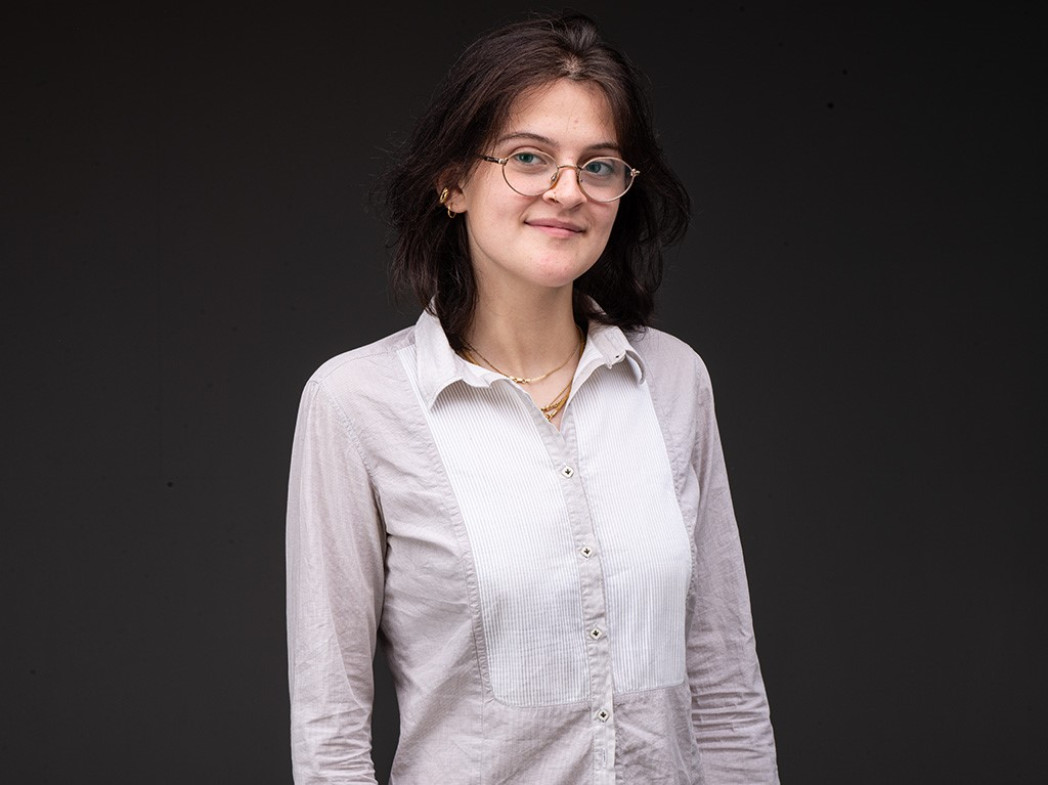In Their Words #3. Student Representative Argentina Carrino

At unibz, student representatives play a vital role in shaping campus life, improving communication, and ensuring that the voices of their peers are heard at all levels. Through their stories, we discover the challenges, motivations, and personal growth that come with representing others.
This series - In Their Words - shares the authentic experiences of those who have chosen to take on this important responsibility — in their own words.
When I decided to run as a student representative, I was driven by a strong belief that students’ opinions are essential within the university environment. After all, the university exists primarily for us, to support our growth, education, and personal and professional development. Ensuring that our voices are heard and considered in decision-making processes is crucial to creating a truly inclusive academic community.
Beyond this, my candidacy was also a personal challenge and an opportunity to learn more about the inner workings of the faculty. I was curious to understand the organisational mechanisms behind the scenes and eager to actively contribute to enhancing the university experience for all students. This dual motivation, representing student interests and embracing a new learning opportunity, guided my commitment throughout my term.
From the outset, I hoped to see greater student engagement and participation in faculty initiatives. I firmly believe that only through open dialogue and collaboration can meaningful change be achieved. I expected students to feel encouraged to share their ideas, attend meetings, and help foster a dynamic and inclusive university atmosphere. While reality sometimes differs from expectations, this drove me to seek innovative ways to increase involvement and create spaces where students’ voices can be truly heard.
One of the more surprising moments during my term occurred when we were tasked, somewhat unexpectedly, with organising part of the special graduation event for the design faculty. This responsibility was not formally assigned or clearly communicated in advance, and we had to handle it within very tight deadlines. Although this situation was hectic due to limited information and short notice, the experience was invaluable. Thanks to the dedication and teamwork of everyone involved, we successfully managed the event and achieved positive outcomes.
This challenge taught me the importance of being proactive, flexible, and solution-oriented. It highlighted how vital communication and collaboration are in overcoming unforeseen difficulties. Such experiences, while demanding, offer tremendous opportunities for personal growth and skill development.
Reflecting on my overall experience, I rate it very positively. I gained essential skills like time management, punctuality, and precision, qualities that extend beyond academia into everyday life. Moreover, representing a group of students deepened my understanding of altruism and responsibility, emphasising the importance of putting collective needs and voices at the centre of my efforts. This role allowed me to grow both personally and as an active member of our university community.
Looking ahead, my advice to future student representatives is to prioritise inclusivity and ensure that every student understands their voice matters and that they have an active role to play. It’s crucial to foster a sense of belonging and connection, not only within one’s own faculty but across the entire university. Organising initiatives, events, and forums encourages participation and empowers students to express their opinions freely and confidently.
Building a strong, cohesive community is the foundation for effective representation. By doing so, student representatives become not only spokespersons but also facilitators of dialogue and collective growth, helping to shape a vibrant and supportive academic environment for all.